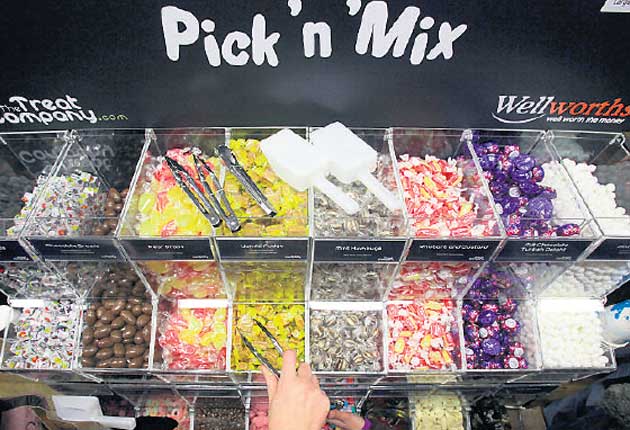Shoppers flock to value stores
Two former Woolworths directors predict good times ahead for the independent high-street sector, reports Virginia Matthews

There may be fierce infighting and even the threat of court battles between the two former Woolworths directors vying for the defunct retailer’s crown this Christmas. But when it comes to predicting a rosy future for the independent high street retailing sector, Andy Latham, whose Alworths chain opens for business in Didcot, Oxfordshire next month, and Tony Page, former commercial director at Woolworths and until recently Latham’s partner, are consulting the same crystal ball.
“The British appetite for one-stop, value shopping in town centres has in noway diminished since Woolworths went into receivership last year. While everyone from the catalogue shops to the supermarkets have attempted to fill the gap, neither the style of shopping nor the convenience of location we had at Woolies have so far been replicated in any meaningful way,” says Latham. Page adds: “Although Woolworths had weaknesses, particularly the sheer number and uniformity of stores and the heavy reliance on home entertainment, I have no doubt a tighter and leaner organisation more able to adapt to changing consumer demand than the old Woolies was, would thrive in the current market conditions.”
Indeed, for the string of low-cost retailers parked in previously mothballed Woolworths sites – among them Poundland and the 170-store chain Home Bargains – independence and value in the high street is proving an irresistible combination to consumers hunting out a bargain. Retail analysts may bicker over whether the outbreak of cheapo retailing can last beyond this recession, but one well-established cost-conscious business is already producing healthy profits out of one-stop shopping.
Better known to the Midlands than to London and the South-east, the family-owned, independent retailer Wilkinson – which adopted pick ’n’ mix long before the demise of Woolworths – has been quick to capitalise on the collapse of its nearest rival. Wilkinson – or Wilko, as it is affectionately known – last year recorded its highest ever annual sales of £1.45bn as 224 million shoppers descended on the chain’s 321 shops in the East Midlands, Scotland and, more recently, Walton-on-Thames. Selling a familiar mix of home and kitchenware, lighting, gardening and DIY, as well as confectionery, stationery and now party wear and snacks, the chain hopes to grow to 500 stores by 2012 – with many of the new openings rising from the ashes of shuttered Woolies stores.
“We may only be 80 years old to their 100, but we are, in effect, Woolworths as it used to be in terms of concentrating on our core strengths and keeping to a manageable size,” says a spokesman. “While we have no plans to reach the 800-or-so store mark, as Woolworths did, we believe there is room for a fairly large independent chain which, having started out provincial, is now looking to go national and even international.”
If Wilko has at least two key advantages over Alworths in its quest to exploit the appeal of variety retailing – not only is it already well-established in the high street, it also has a thriving online business – there could, arguably, be a stronger claim to the Woolworths throne from distant relatives in both Stornoway and Dorset. At the former Woolworths store in Dorchester – reopened in March under the new brand name Wellworths – founder and former Woolies store manager Claire Robertson may not yet be operating on the grand scale envisaged by either Wilko or Alworths, but her place in independent retailing history is assured.
In common with the backers of WeeW in Stornoway, the rebranded Woolworths that continues, under one roof, to offer light bulbs, frying pans, knitting needles and knickers to the islanders of Lewis, Robertson’s philosophy rests on pure local need rather than retail empire-building. “When Woolies closed, I lost count of the number of times I was asked where people could buy stick-on soles, cotton reels or party toys and I realised the appeal of Woolworths was as much about local need as it was about nostalgia for the familiarity of the brand. Although it wasn’t on my original list, I have brought back home entertainment by popular demand and will continue to ask shoppers what they want, and where possible seek to stock it, as time goes on.”
Now on target for a year-one turnover of £1.8m, Robertson isn’t much interested in high finance and secret business deals with men in suits, but she is interested in independent retailing with a local twist. “The biggest difference between us and Woolworths is we are committed to reflecting the unique demographics and character of each local area, rather than imposing an identical menu of products on every store.”
Dorchester already stocks locally produced biscuits, confectionery and stationery alongside more wellknown wholesale items, and will continue to buy in anything “that can’t easily be bought elsewhere locally.” Although Wellworths is founded on value retailing principles, however, Robertson distances her brand from that of new operators such as 99p Stores. “Woolworths was always keen to offer a number of different price points for consumers, and we are continuing that tradition with Wellworths. Many of our lines have a £10 and £5 option as well as a £1 price point and, given some of our stock retails at £150 ormore, I do not see we can be classed as a truly low-cost retailer even if we continue to be a value brand.”
While Robertson hopes, given a good Christmas in Dorset, to reopen two or three more stores next year, Wellworths is not yet in major expansionist mood. “The ex-Woolworths guys have come to me and we have discussed joining forces, but Wellworths is my baby and it’s going pretty well. I have no intention of giving up control of this business to them or anybody else.”
Join our commenting forum
Join thought-provoking conversations, follow other Independent readers and see their replies
Comments